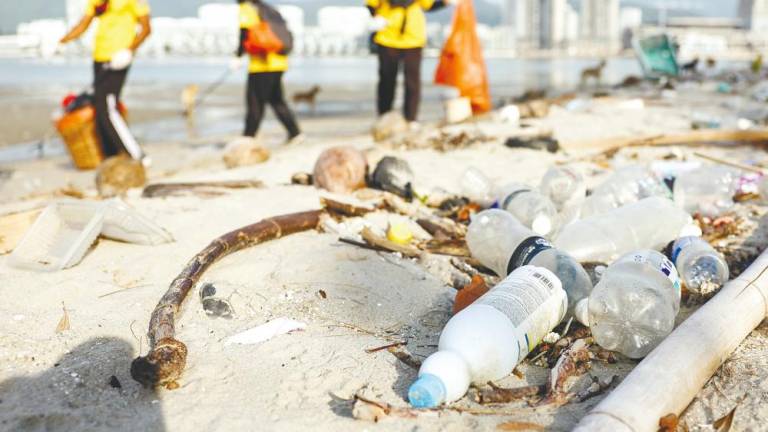LONDON: Oil prices fell today after Saudi Arabia and Russia delayed a meeting to discuss output cuts that could help reduce global oversupply as the coronavirus pandemic pummels demand.
Brent crude fell more than US$3 (RM13.11) when Asian markets opened but recovered some ground, with traders hopeful that a deal between the top producers was still within reach.
At 1135 GMT, Brent was down 81 cents, or 2.4%, at US$33.30 a barrel. US crude was 65 cents, or 2.3%, lower at US$27.69 a barrel, off a session low of US$25.28.
The Organization of the Petroleum Exporting Countries and its allies, a group known as Opec+, is expected to meet on Thursday, instead of today, to discuss cutting production.
“Perhaps it is best that the meeting was delayed for producers to cement a minimum of common ground before the actual discussions take place on Thursday,” said BNP Paribas analyst Harry Tchilinguirian, although he noted initial disappointment at the delay had driven down prices in Asian business.
Kremlin spokesman Dmitry Peskov said Moscow was ready to coordinate with other oil exporting countries to help stabilise the market and that the Opec+ meeting was delayed for technical reasons and preparations for the meeting were under way.
“Moscow is ready for coopera-tion and interested in interaction with countries in order to stabilise the energy markets,” Peskov told a daily conference call with reporters.
Kirill Dmitriev, one of Moscow's top oil negotiators who also heads Russia’s sovereign wealth fund, told CNBC earlier today that Saudi Arabia and Russia are “very, very close” to a deal on oil production cuts.
“I think the whole market understands that this deal is important and it will bring lots of stability, so much important stability to the market, and we are very close,” he said.
Dmitriev was the first to make a public declaration last month about the need for an enlarged supply pact, potentially involving producers outside the Opec+ group.
Opec+ is working on a deal to cut production by about 10% of world supply, or 10 million barrels per day (bpd), in what member states expect to be an unprecedented global effort.
But Rystad Energy’s head of oil markets Bjornar Tonhaugen said even if the group agrees to cut up to 15 million bpd, “it will only be enough to scratch the surface of the more than 23 million bpd supply overhang predicted for April 2020”.
Still, sentiment was lifted by Saudi Arabia’s decision to delay releasing its official crude selling prices to Friday awaiting the outcome of the Opec+ meeting.
US President Donald Trump has said he would impose tariffs on crude imports if needed to protect US energy workers from the oil price crash.
“The global economy is in a painful recession and there is inevitably worse to come,” said Stephen Brennock of oil broker PVM. “As Opec+ ponders fresh supply curbs, you can’t help but think that the oil market will continue to be at the mercy of the virus pandemic.”
Markets were also spooked when the National Health Commission of China said today that 78 new asymptomatic cases had been identified as of the end of the day on Sunday, compared with 47 the day before. – Reuters













